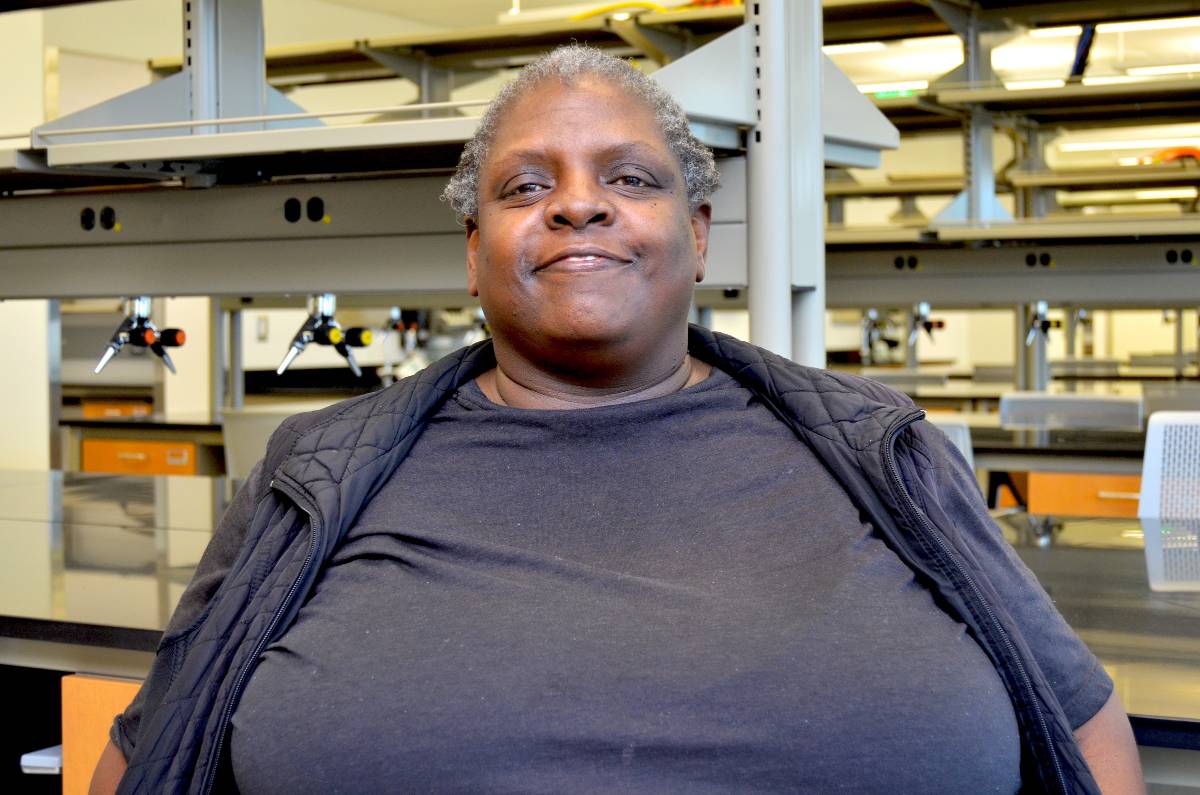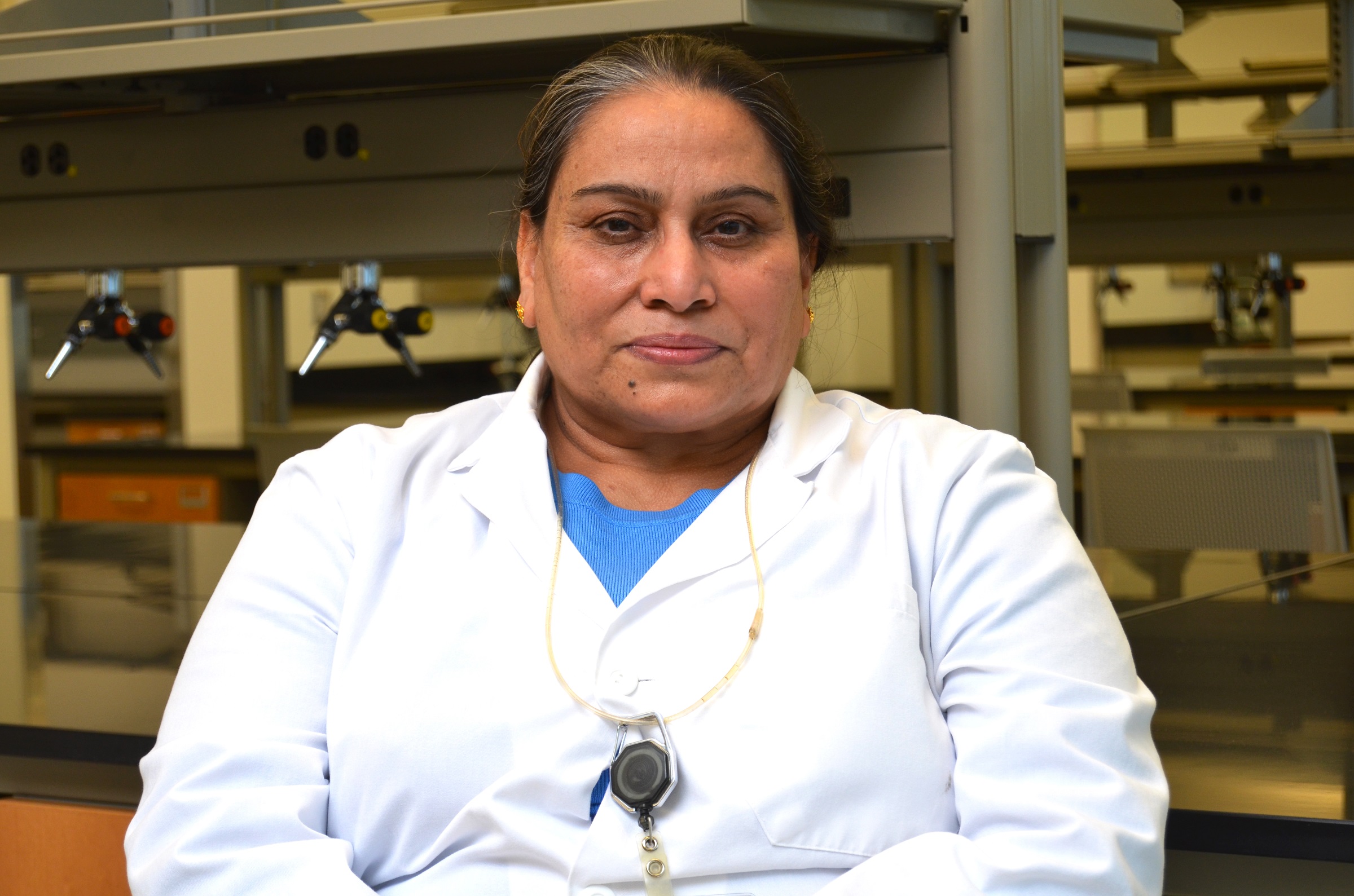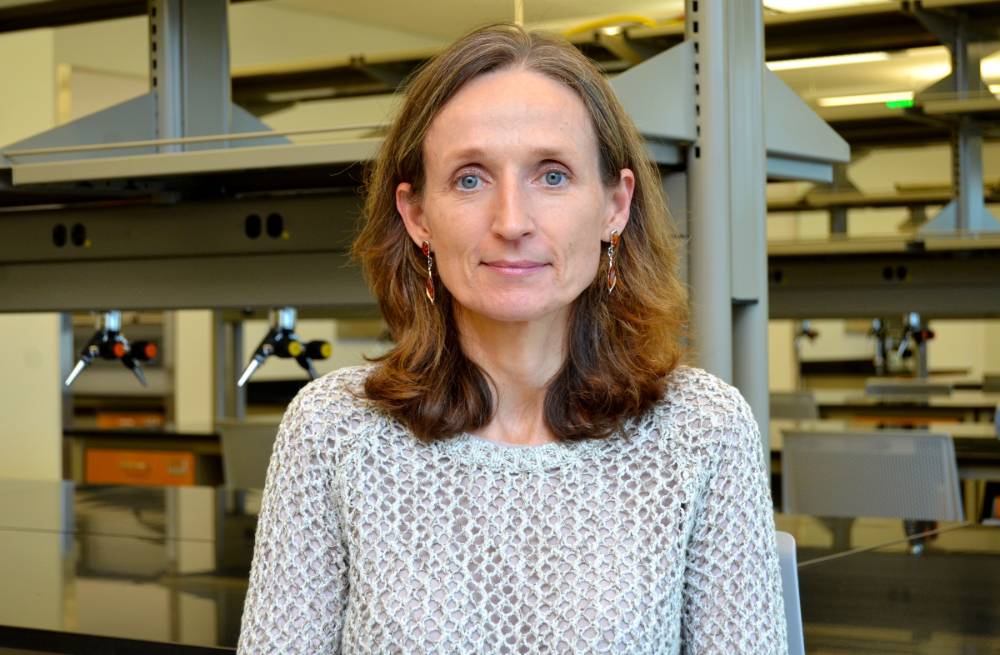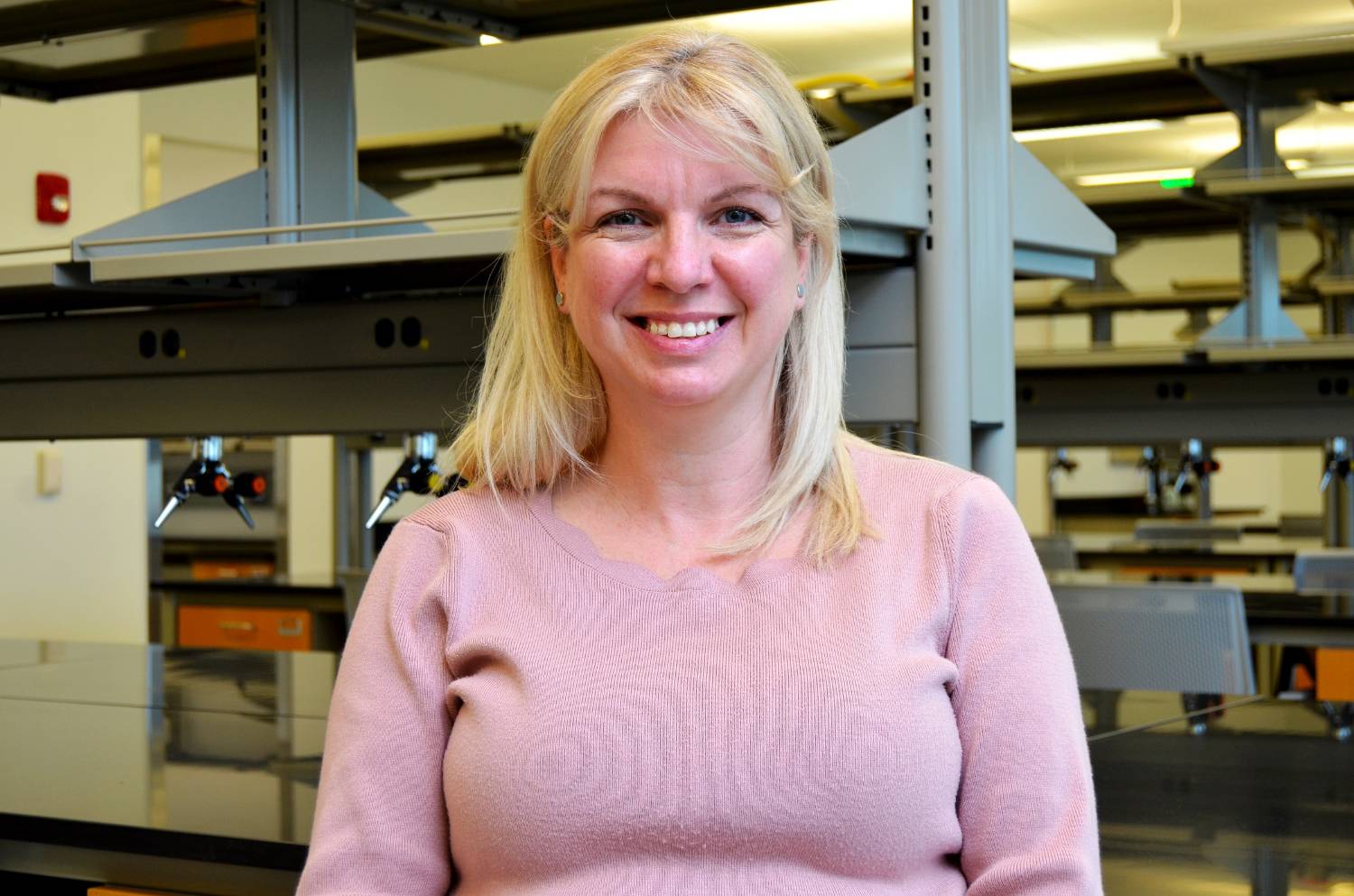Georgia Cancer Center
We are Georgia's Cancer Center
The Munn Lab
David Munn, MD
Professor, Pediatric Oncology
Co-Director, Pediatric Immunotherapy Program
Medical College of Georgia at Augusta University
Research Summary
Our research is focused on activating the body’s own immune system to fight cancer.
We work on discovering the ways in which cancers suppress the immune system, and on
identifying the molecular mechanisms that tumors use to escape from immune attack.
Along with our collaborators, we have developed new drugs and clinical strategies
to activate the immune response against tumors and enlist the patients’ own immune
system to enhance the effectiveness of conventional chemotherapy drugs and radiation.
Target diseases include adult and pediatric solid tumors and brain tumors. Dr. Munn’s
research is funded by the National Institutes of Health and support from charitable
foundation donors.
Research Focus
Our research is focused on tumor immunology and the molecular mechanisms of immune suppression and tolerance in the tumor microenvironment. The laboratory studies the regulation of anti-tumor T cell activation by tolerogenic dendritic cells and regulatory T cells (Tregs) in the setting of cancer.
Major focus areas in the laboratory include (i) activation of suppressive tumor-associated Tregs via the indoleamine 2,3-dioxygenase (IDO) pathway; (ii) regulation of the dendritic cell (DC) population in tumors and the choice between tolerogenic vs. immunogenic DCs; and (iii) tolerance-induction to dying tumor cells mediated via the enzyme indoleamine 2,3-dioxygenase (IDO) and the Bruton’s Tyrosine Kinase (BTK) pathway.
Contact Us
The David Munn Lab
Health Sciences Campus
GCC - M. Bert Storey Research Building
1410 Laney Walker Blvd., CN-4156B3
(706) 721-7141
(706) 721-4804
Research Interests
Basic-science studies of the role of the indoleamine 2,3-dioxygenase pathway in Tregs, including the regulation of the suppressor phenotype vs. destabilization and reprogramming during inflammation. The translational goal of these studies is to develop orally-bioavailable small-molecule inhibitors drugs to block this novel immune-checkpoint and destabilize Tregs in tumors.
Molecular mechanisms of inflammation-induced differentiation of immunogenic dendritic cells, and the suppression of immunogenic DCs by IDO-activated Tregs. The translational goal of these studies is to develop orally-bioavailable small-molecule drugs that induce differentiation of immunogenic DCs in tumors.
Basic and pre-clinical studies of immune response to dying tumor cells after chemotherapy; and synergy between conventional chemotherapy and novel forms of immunotherapy targeting Tregs and DCs.
Design and immune-monitoring of Phase I and Phase II clinical trials of IDO-inhibitor drugs in combination with chemotherapy, radiation and BTK-inhibitor drugs. These include first-in-children pediatric trials, in conjunction with the Pediatric Immunotherapy Service and Dr. Theodore Johnson.
Selected Publications
Sharma MD, Shinde R, McGaha TL, Huang L, Holmgaard RB, Wolchok JD, Mautino MR, Celis E, Sharpe AH, Francisco LM, Powell JD, Yagita H, Mellor AL, Blazar BR, Munn DH*. The PTEN pathway in Tregs is a critical driver of the suppressive tumor microenvironment. Science Advances 1, e1500845 (Nov., 2015)
Noonepalle SK, Gu F, Lee EJ, Choi JH, Han Q, Kim J, Ouzounova1 M, Shull AY, Pei L, Hsu PY, Kolhe R, Shi F, Choi J, Chiou K, Huang THM, Korkaya H, Deng L, Xin HB, Huang S, Thangaraju M, Sreekumar A, Ambs S, Tang SC, Munn DH, Shi H. Promoter methylation modulates indoleamine 2,3-dioxygenase induction by activated T cells in human breast cancers. Cancer Immunol Res. 66: 1049-1058 (April, 2017)
Mangaonkar A, Mondal AK, Fulzule S, Pundkar C, Park EJ, Jillella A, Kota V, Xu H, Savage NM, Shi H, Munn DH, Kolhe R. A novel immunohistochemical score to predict early mortality in acute myeloid leukemia patients based on indoleamine 2,3 dioxygenase expression. Scientific Reports. 7(1):12892 (Sept., 2017)
Sharma MD, Rodriguez PC, Koehn BH, Baban B, Cui Y, Guo G, Shimoda M, Pacholczyk R, Shi H, Lee EJ, Xu H, Johnson TS, He Y, Mergoub T, Venable C, Bronte V, Wolchok JD, Blazar BR, Munn DH*. Activation of p53 in Immature Myeloid Precursor Cells Controls Differentiation into Ly6c(+)CD103(+) Monocytic Antigen-Presenting Cells in Tumors. Immunity. 48:91-106 (Jan., 2018)
Shinde R, Hezaveh K, Halaby MJ, Kloetgen A, Chakravarthy A, Medina TDS, Deol R, Manion KP, Baglaenko Y, Eldh M, Lamorte S, Wallace D, Chodisetti S, Ravishankar B, Liu H, Chaudhary K, Munn DH, Tsirigos A, Madaio M, Gabrielsson S, Touma Z, Wither J, Carvalho DD, McGaha TL. Apoptotic cell induced TLR9-dependent AhR activity is required for immunologic tolerance and suppression of lupus. Nature Immunol. 19:571-582 (May, 2018)
Nayak-Kapoor A, Hao Z, Sadek R, Dobbins R, Marshall L, Vahanian NN, Jay Ramsey W, Kennedy E, Mautino MR, Link CJ, Lin RS, Royer-Joo S, Liang X, Salphati L, Morrissey KM, Mahrus S, McCall B, Pirzkall A, Munn DH, Janik JE, Khleif SN. Phase Ia study of the indoleamine 2,3-dioxygenase 1 (IDO1) inhibitor navoximod (GDC-0919) in patients with recurrent advanced solid tumors. J Immunother Cancer (JITC). 6:61 (June, 2018)
Halaby MJ, Hezaveh K, Lamorte S, Ciudad MT, Kloetgen A, MacLeod BL, Guo M, Chakravarthy A, Medina TDS, Ugel S, Tsirigos A, Bronte V, Munn DH, Pugh TJ, De Carvalho DD, Butler MO, Ohashi PS, Brooks DG, McGaha TL. GCN2 drives macrophage and MDSC function and immunosuppression in the tumor microenvironment. Science Immunol. 4(42):eaax8189 (Dec., 2019)
Zakharia Y, McWilliams RR, Rixe O, Drabick JJ, Shaheen MF, Grossmann K, Kolhe R, Pacholczyk R, Sadek R, Tennant LL, Smith CM, Kennedy EP, Link CJ, Vahanian NN, Yu J, Shen SS, Brincks EL, Rossi GR, Munn DH, Milhem MM. Phase II Trial of the IDO pathway inhibitor indoximod plus pembrolizumab for the treatment of patients with advanced melanoma. J Immunother Cancer (JITC). 9:e002057 (June, 2021)
Sharma MD, Pacholczyk R, Shi H, Berrong ZJ, Zakharia Y, Greco A, Chang CS, Eathiraj S, Kennedy E, Cash T, Bollag RJ, Kolhe R, Sadek R, McGaha TL, Rodriguez P, Mandula J, Blazar BR, Johnson TS, Munn DH*. Inhibition of the BTK-IDO-mTOR axis promotes differentiation of monocyte-lineage dendritic cells and enhances anti-tumor T cell immunity. Immunity. 54:2354-71e8 (Oct. 2021)
Johnson TS, MacDonald TJ, Pacholczyk R, Aguilera D, Al-Basheer A, Bajaj M, Bandopadhayay P, Berrong Z, Bouffet E, Castellino RC, Dorris K, Eaton BR, Esiashvili N, Fangusaro JR, Foreman N, Fridlyand D, Giller C, Heger IM, Huang C, Kadom N, Kennedy EP, Manoharan N, Martin W, McDonough C, Parker R, Ramaswamy V, Ring E, Rojiani A, Sadek RF, Satpathy S, Schniederjan M, Smith A, Smith C, Thomas BE, Vaizer R, Yeo KK, Bhasin M, Munn DH. Indoximod-based chemo-immunotherapy for pediatric brain tumors: a first-in-children phase 1 trial. Neuro-Oncology. 2023;(in press)
Research Team

Joyce Wilson
- Research Associate


